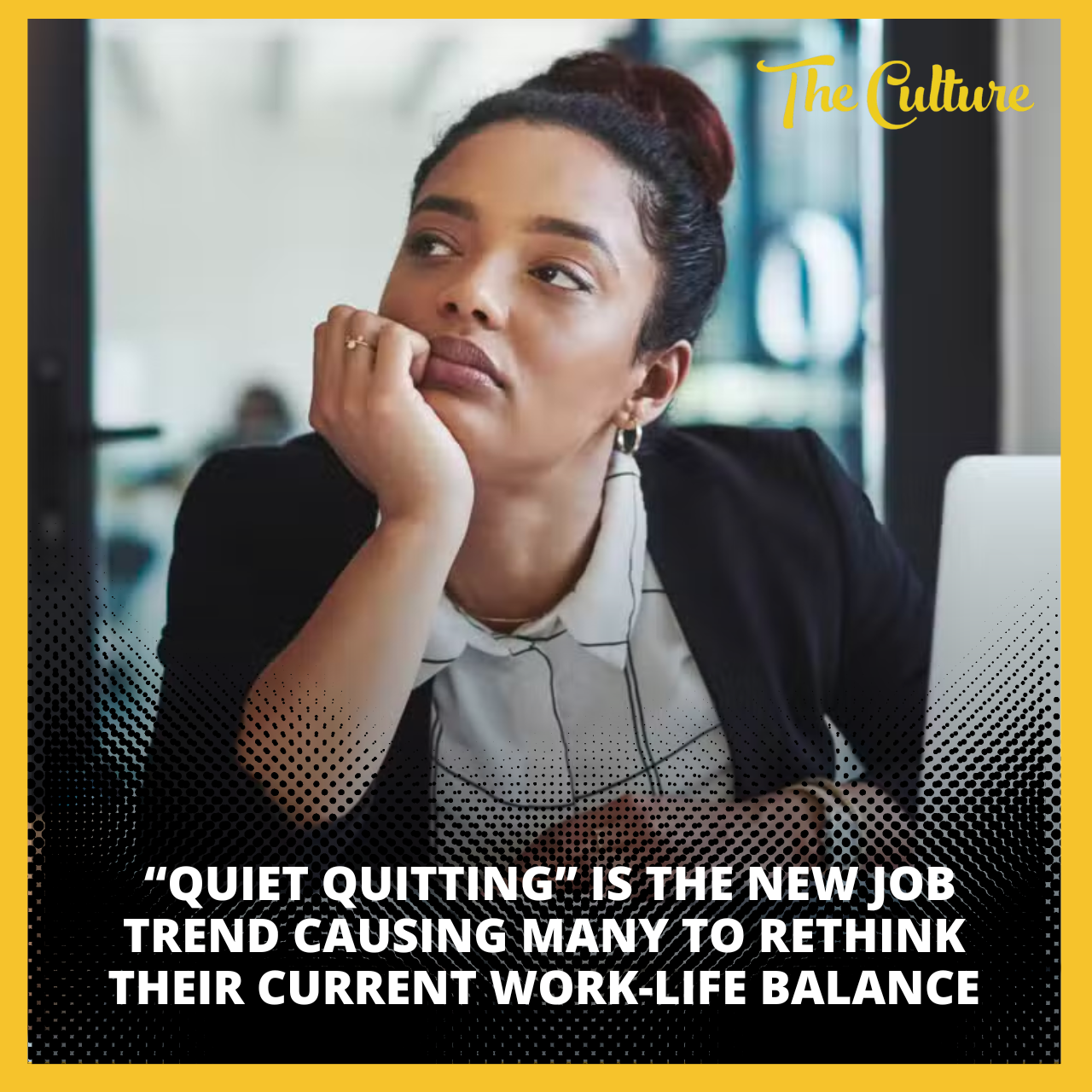
“QUIET QUITTING” IS THE NEW JOB TREND CAUSING MANY TO RETHINK THEIR CURRENT WORK-LIFE BALANCE
Has your job been draining your energy because you always try to go the extra mile and work beyond what is listed in your job description?
If your answer is yes, you might be among those who think going above and beyond is always rewarding. However, there is a need to rethink because, with this work life, you feel more exhausted than accomplished.
There is a new buzzword all over TikTok and Twitter for people like you – Quiet Quitting.
What is Quiet Quitting?
In quiet quitting, you are not outrightly quitting your job. Instead, you continue your job but do not follow the corporate hustle culture where you must consider your work your life. It is about creating a balance between your personal life and your work life.
Working tirelessly, staying late at the office, and providing extra work you are not paid for are a few examples of a work culture that quiet quitters do not accept or follow. According to this term, employees do not go above and beyond in their careers and focus on other things they do outside the office while still performing their duties and responsibilities at the job.
Who Introduced the “Quiet Quitting” Trend and Why?
Many of us wonder why there is even a need for giving a specific name to something as ordinary as going to your job and performing your duties but with less enthusiasm and not doing anything extra without extra payment.
Quiet quitting is a trend that went mainstream after discussions of millennial and Gen-Z creators went viral on TikTok. The first among them were Zaiad Khan, with 10,000 followers, and Clayton Farris, with 48,000 followers.
Zaiad Khan juxtaposed a video with a New York City subway, saying, “Work is not your life. Your worth is not defined by your productive output.”
Clayton Farris featured himself in a video stating that, “quiet quitting is a trend where workers are taking back their time and their mental space to allow for more than just work in their life.”
After the Great Resignation, quiet quitting is on trend because people need some time to mentally check out from their work and for other joys of life. After going through the pandemic, work life is more about creating a balance between work and other requirements and activities of life. You do not have to be stressed out and only focus on work to feel accomplished.
Bottom Line
The corporate hustle culture has led many to question their approach to their jobs. Since the pandemic hit, employees have started realizing an immense need to balance work life. They no longer want to be enthusiastic about their careers at the expense of their health and their personal lives.
According to the Economic Policy Institute, in the U.S., workers’ productivity increased 3.5 times as much as pay between 1979 and 2020. Why would you work three times harder if you’re not getting three times the salary?
Employees have set these boundaries has allowed them to work smarter, not longer. This does not mean employees aren’t volunteering to do things outside of their work scope. However, they are more cautious about how they are spending their efforts and taking work outside of their job description without being compensated.

